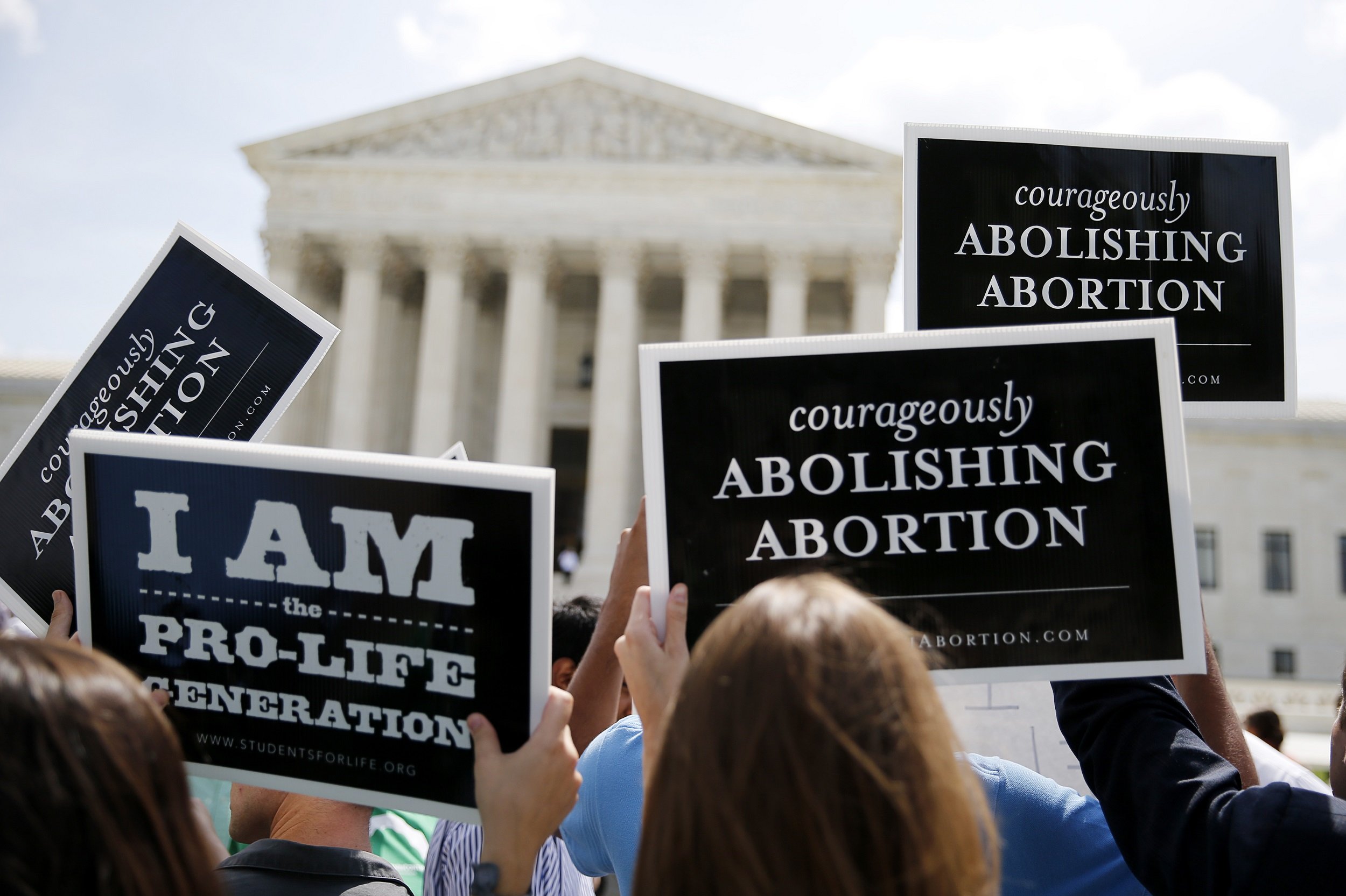
The Supreme Court had to choose between two constitutional rights on Thursday, and abortion rights lost out. In a unanimous ruling, the Justices struck down a Massachusetts law that prevented protesters from gathering within a 35-foot "buffer zone" around abortion clinics as an infringement on First Amendment rights.
McCullen v. Coakley dealt with the difficult balance between free speech and the right to abortion without harassment. In striking down the Massachusetts law, women's rights advocates feel the court has created a risk for women in that state, and beyond. "We're very disappointed," says Sharon Levin, director of federal reproductive health policy at the National Women's Law Center. "It is dangerous for the women of Massachusetts to strike down this provision."
The law was enacted in 2007 in response to a long history of violence and intimidation at the state's abortion clinics, including a 1994 shooting. "Buffer zones were created in response to a very real need of people outside the clinics harassing and intimidating and obstructing women's access to the clinics," says Levin.
"We agree that a buffer zone does place a burden on First Amendment rights," says Steven Shapiro, legal director at the American Civil Liberties Union. "But we also think the court underestimated the proven difficulty of protecting the constitutional rights of women seeking abortions by enforcing other laws, especially regarding harassment outside abortion clinics."
Three other states have buffer zone laws, and challenges to them are now likely. "I don't think it forecloses them entirely, but it does put a burden on the state to demonstrate that it can't adequately protect the rights of women going in and out of the clinics through other means," Shapiro says. "That's a threshold now that the state has to get over."
That threshold is now high, since Massachusetts had defended their law by showing that former laws had not offered sufficient protection to women seeking abortions. "We are concerned that [the Justices] have set a very high bar, and it will make it more difficult for states to be able to put buffer zones in place," Levin says.
"The only tool we have left to combat clinic violence is to prosecute people after they have already committed violent acts," says Megan Amundson, executive director of the reproductive rights group NARAL Pro-Choice Massachusetts. "We know that prosecuting zealots does not deter them. But violence at clinics does deter women from accessing essential medical care."
Uncommon Knowledge
Newsweek is committed to challenging conventional wisdom and finding connections in the search for common ground.
Newsweek is committed to challenging conventional wisdom and finding connections in the search for common ground.
About the writer
Pema Levy is a Washington Correspondent for Newsweek, covering Congress, elections and dabbling in court battles and other political miscellany. ... Read more
To read how Newsweek uses AI as a newsroom tool, Click here.





